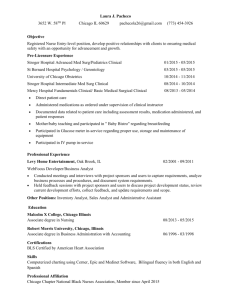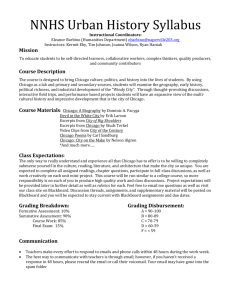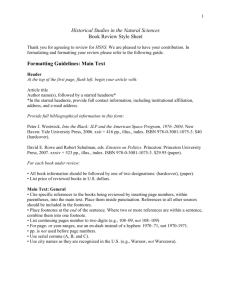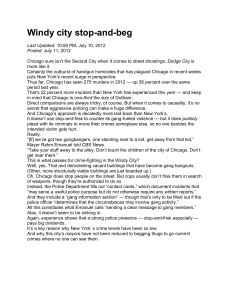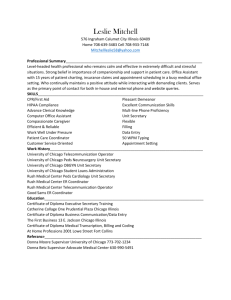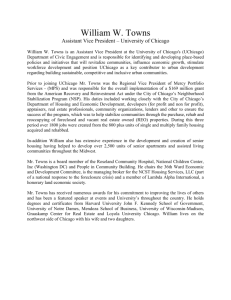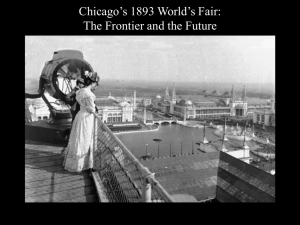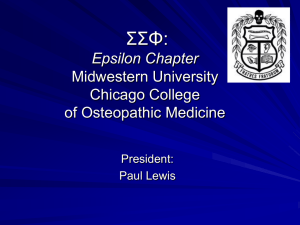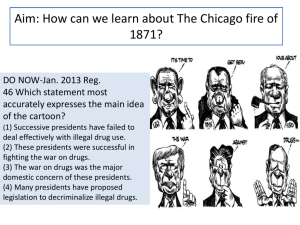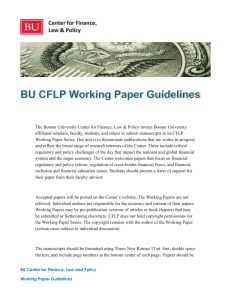Great Chicago Fire
advertisement
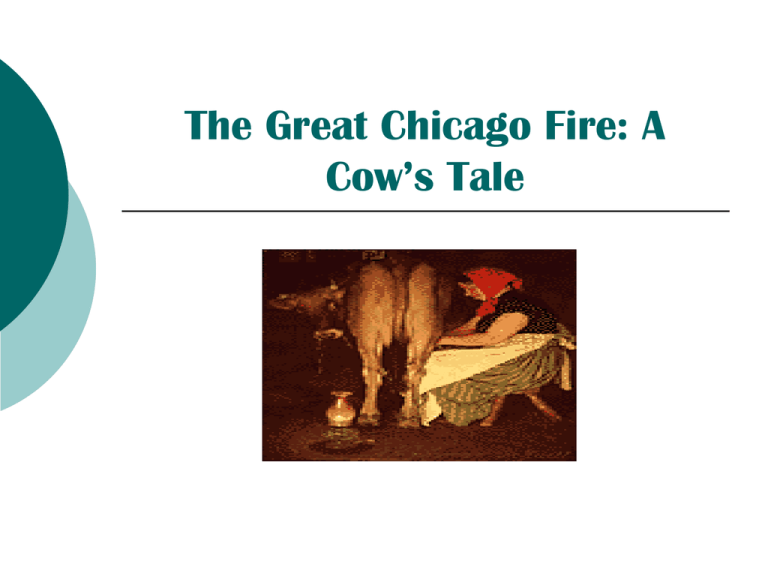
The Great Chicago Fire: A Cow’s Tale Great Chicago Fire In 1871 Chicago had become one of America’s major cities. The city was the “Queen of the West.” The growth of the railroads in the 1840’s and 1850’s created by the Civil War played a great part in the cities commerce. The city’s prosperity can be attributed to its location. Cattle and grain trades as well as manufacturing thrived. Houses, churches, stores, factories and sidewalks were made of mostly of wood. Great Chicago Fire During the fall of 1871, the entire Midwest had suffered a major drought. The fire grew out of control when driven by a gale-force wind that fed on the parched timbers that had seen no rain in weeks. The fire raged for 29 hours. Great Chicago Fire The Great Chicago Fire influenced Chicago’s Building Codes. The history of Fire Prevention Week has its roots in the Great Chicago Fire. The architecture in Chicago is a legacy of the fire. Great Chicago Fire There was a great deal of anti-immigrant, anti-Irish, and the anti-Catholic sentiment in Chicago in the 1870’s. This probably contributed to the hurried decision to blame the O’Leary’s. Mrs. O’Leary was an easy target for the anti-Irish, anti-working class and anti-women movement. Great Chicago Fire The statements taken by the citizens and the firemen were often contradictory. The perspectives and views of the individuals after the City Council’s resolution also varied. The energy spent on this matter over 140 years after the fact remains controversial.


